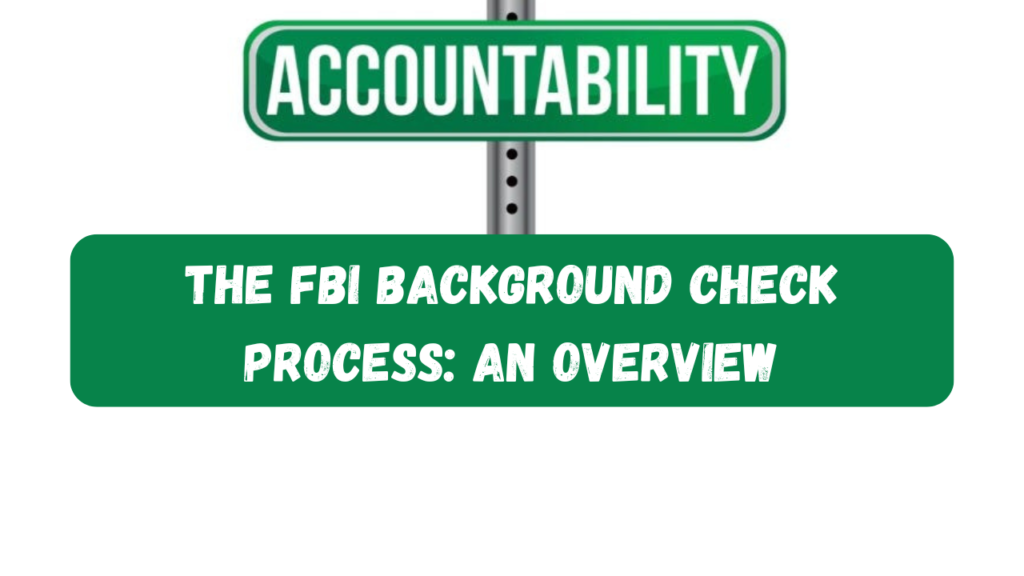Politics
Trump Administration’s Controversial Decision to Skip FBI Background Checks for Some Cabinet Positions
Published
1 month agoon
By
Supriya
Since former President of the United States Donald Trump began naming individuals to key cabinet positions in his administration, the processes involved in selection for top government officeholders and vetting procedures have been characterized by numerous controversies. The most contentious aspects of the hiring decisions made by the administration of the former President were those in which some of the cabinet nominees were excluded from regular FBI background checks. These decisions raised points concerning security, openness, and the integrity of the nominating process.
The FBI Background Check Process: An Overview

The FBI background check is one of those processes the applicant going through any federal job screening has to face if he or she is being assigned a position which deals with sensitive information or has much influence. The investigations will ascertain whether the respective individuals qualify to fill public offices. Specifically, assessment is to be made about their financial integrity, criminal background, and potential issues of conflict of interest and possible threats against national security. All this relates to a person’s criminal history, financial history, work history, international contacts, and much more included in this screening of the background.
Those nominated for cabinet positions need to provide detailed financial records, face an inquiry by investigators, and their contacts and personal history be put under scrutiny. The FBI conducts the background check and, during the confirmation process, one is obliged to respond to the questions of the Senate. Upon completion of the background check, the White House and the Senate committees that oversee the confirmation of the nominee will receive a report from the FBI.
The revelation that certain cabinet appointments were made outside the foregoing process caused quite a stir over the Trump administration. In addition to giving the impression that it broke long-standing convention, in some people’s minds, it may have conveyed the impression that there was no respect for the usual checks and balances imposed by government.
Read more:- Russian Hackers Exploit NTLM Flaw to Spread RAT Malware Through Phishing Attacks.
The Controversy Surrounding the Trump Administration’s Cabinet Picks
The FBI could not carry out background investigations in a timely manner or even failed to do so for some of the Trump-nominated cabinet nominees. This caused some controversies and some purposeful discussions for possible blowbacks arising from jettisoning the old practice. Here are some examples:
1. Rex Tillerson (Secretary of State)
First, the Secretary of State, Rex Tillerson
Former ExxonMobil CEO Rex Tillerson was nominated as Secretary of State in 2016.
Tillerson’s proximity to Russia and his ruler, Vladimir Putin, made his appointment one of the most closely watched of all the cabinet selections made by Trump. A question surrounding Tillerson was whether he might involve himself in conflicts of interest through business ties with Russia. He had an established network of high-level international commercial links, so it was necessary for the FBI to take its background check procedure quite seriously to identify any possible threats to American foreign policy. Tillerson was forwarded for a background check to the FBI, however, the investigation was said to be delayed reportedly due to his complicated financial interests. There were also reports that some of his international ties were forgiven by the White House by the FBI. It would have been perfect if there was a deeper probing into his track as a businessman with enormous business deals in Russia and other places outside of the US to know whether or not there are some conflicts of interest.
2. Ben Carson (Secretary of Housing and Urban Development)
Ben Carson, the neurosurgeon-turned-politician was going to be given the nod as the HUD Department head. The only thing wrong with Carson is that he had no idea about the problems involving housing and urban development; his unusual political history and the fact that he was not mandated to undergo a background check with the FBI following his nomination also made the choice contentious.
He seems to have failed to investigate much into his background when appointed; this was at a time when he headed a very gigantic governmental department that possessed the privileges of access to certain private policy information.
During some of his confirmation, a few of his financial disclosure issues were noted. One such issue is his connections to certain business operations that will benefit from his policies. However, Carson’s confirmation happened without there being an FBI background check. This leaves it to the public’s speculation about the thoroughness of the procedure and if any possible conflicts of interest were overlooked.
3. Steve Mnuchin (Secretary of the Treasury)
A long-time Goldman Sachs executive was designated as Treasury Secretary, Steve Mnuchin.
Background checks his large financial transactions and in subprime mortgage crisis since he has had a career in finance might have needed to delve deeper as part of the process for confirming him. Meanwhile, there are issues about the shortcomings in the background check on Mnuchin. Some say that his financial background was not really scrutinized. His possible conflicts of interest and lack of transparency on his financial transactions compromised the credibility of the process, according to critics. To make sure that Mnuchin’s activities at Goldman Sachs, through his personal business dealings or his connections with other rich people did not spill over into the work of a Treasury Secretary, whose decisions of the national financial policy require more reviews, more scrutiny was called for. Even though Mnuchin was confirmed, his background check process presented continued public concerns, given the misses of chances for deeper review that slid by.
What Happens When the FBI Background Check Is Skipped?

The FBI background check is used for a variety of purposes, to wit:
- This is the key national security issue: does a nominee have any personal contacts or foreign connection that might be a security risk? There is no fool proof way to know that a nominee has no vulnerable associations if not thoroughly vetted.
- Integrity & Ethics: Such unethical issues such as criminal activity, corruption or financial conflict of interest raise among other problems at the checks of background. If this stage is not considered, appointees appear not to be accountable and might be inappropriate for the given assignments.
Public’s trust: Skipping the background checks violates the trust that the public places in this nomination process. In such important government positions, the people expect the most competent, ethical, and responsible persons to be nominated. Lack of background checks can bring the whole process into question.
Implications for the Trump Administration
Background checks were either delayed or skipped altogether for some of the prominent appointees that went to further mar the whole scandal surrounding the administration. Skipping such an important implementation was quoted among criticisms that continue, very apparently, with an obvious trend undermining long-standing checks both on policy actions and on general institutional belief in government processes. It also calls the commitment of the president to accountability and transparency into doubt.
Although the White House frequently resorted to the excuse that some of the nominees had been screened enough or that some checks were being made in favour of its judgments, the lack of transparency allowed suspicion to creep in. Besides, it is the issues over the extent of scrutiny and check being imposed upon the appointees by Trump that came out from the fact that the Senate was willing to confirm the nominees without proper background checks.
The Fallout and Accountability

It is a problem because it reflects greater disrespect for procedures meant to guard against corruption, ineptitude, and even risks to national security. Such grave consequences arising from checks and balances of that kind make sure that integrity and public trust in the government is of paramount importance.
These scandals cried out for a more transparent confirmation process and led the public to call out for more, even during the administration of President Donald Trump. Senate hearings and public outcry over the lack of proper vetting brought home how crucial it is to maintain high standards when putting people into places of authority.
In addition, it made apparent that some improvements are actually needed to ensure that in the future, no government administration ignores FBI background checks and that the nomination process stays intact.
Conclusion
Trust in the government’s capability of serving its population effectively rests on the integrity of cabinet appointments and the openness of the vetting procedure.
It has proved to be highly controversial time in the American political landscape in which Trump’s regime opted to waive or defer the FBI background checks on some of his cabinet appointees.
While most of his appointments to the cabinet are confirmed, circumventing the procedure for conventional background checking, this policy has sharply thrown up the gravest questions concerning governmental accountability, ethics, and transparency. The such long-lasting impacts should make future administrations take heed in not thoroughly screening important nominees for a potential threat in national security, financial integrity, or ethical norms. This will rebuild the lost confidence in the selection of public officials.




